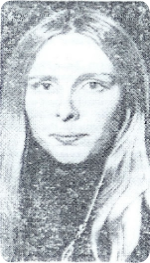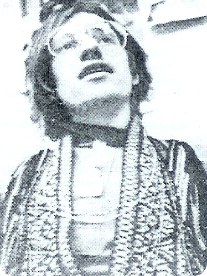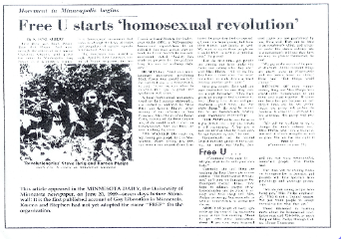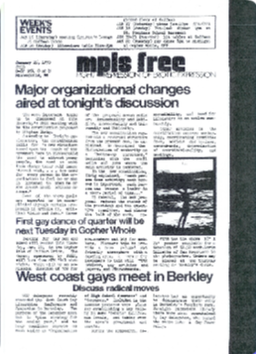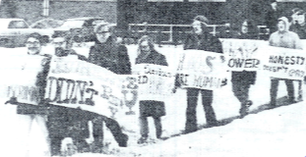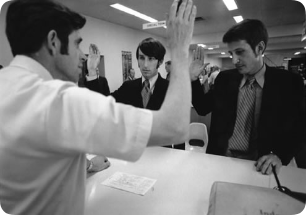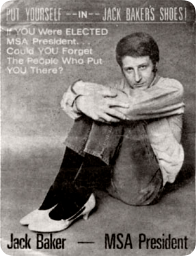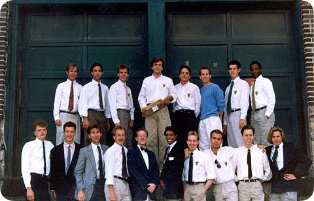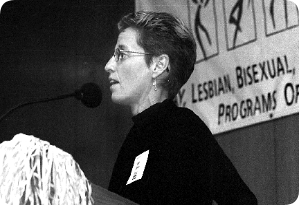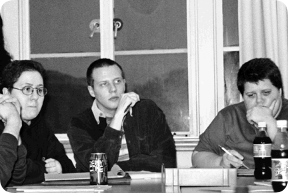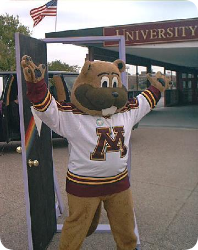qscc history
1969
On May 18, Koreen Phelps and Stephen Ihrig established Fight Repression of Erotic Expression (FREE). It began when they started teaching a Free University course on the West Bank on The Homosexual Revolution. It soon became a full-fledged organization, and was the first student group for queer individuals on the U of M campus, the first queer student-run group in the entire nation, and the first GLBT organization in the state of Minnesota.
Its purpose as an organization was "to free people from outdated, damaging moral restrictions" and "to abolish any law or prejudice that prohibits any sexual activity between consenting persons". Its goal was to have "freedom to walk hand in hand down the street, to embrace in public, to dance together, to live in peace with [their] lovers without feeling the guilt and shame that this straight, sick society [had] forced upon [them]".
On June 20, The Minnesota Daily published an article by S. Jane Albert about the organization entitled "Free U starts 'homosexual revolution'" (the paper from that day can be found here). It was first published account of the gay liberation movement in Minnesota; it was also seven days before the Stonewall riots in New York City.
On June 20, The Minnesota Daily published an article by S. Jane Albert about the organization entitled "Free U starts 'homosexual revolution'" (the paper from that day can be found here). It was first published account of the gay liberation movement in Minnesota; it was also seven days before the Stonewall riots in New York City.
On October 24, the Senate Committee on Student Affairs officially recognized FREE as a registered campus organization by approving its Constitution.
1970
FREE distributes its first publication: Minneapolis Free. It was the first printed GLBT publication in Minnesota
In February, FREE members successfully have their first gay rights protest; it is the first documented gay rights protest in the state of Minnesota.
1971
Two FREE officers - Jack Baker and Mike McConnell - applied and received a marriage license in Mankato, Minnesota. They thus became the first same-sex couple to receive a marriage license in the United States. Later that year, the Minnesota Supreme Court ruled the union unconstitutional, proclaiming that the “institution of marriage as a union of a man and woman, uniquely involving the procreating and rearing of children within a family, is as old as the book of Genesis.”
On March 3, FREE, with the help of grants from several local Protestant organizations, establishes the Gay House, the first official social services organization for gay and lesbian persons in Minnesota. It was located on Ridgewood Avenue in Loring Park.
Jack Baker - then president of FREE - was elected the president of the Minnesota Student Association (MSA). In doing so, he became the first openly homosexual student body president of a major University in the United States.
Jack Baker - then president of FREE - was elected the president of the Minnesota Student Association (MSA). In doing so, he became the first openly homosexual student body president of a major University in the United States.
1972
FREE decided to change its name to Minnesota Gay Activists; it soon changed its name to University Community Gay Association.
1975
The University of Minnesota Regents unequivocally deny adding gay and lesbian studies to the student curriculum at the University.
1977
University Community Gay Association changes its name to Minnesota Lesbian Gay Community.
1982
The Minnesota Lesbian Gay Community splits into two separate entities: University Lesbians and University Gay Community. University Lesbians became a division of University Young Women (now the Feminists Student Activist Collective).
1985
Bi Wimmin Welcome was founded. It became the first queer student group established outside the jurisdiction of FREE predecessors.
1986
University Gay Community and University Lesbians successfully lobby the University of Minnesota to amend its anti-discrimination statement to include sexual orientation.
1987
Delta Lambda Phi, Delta Chapter, was founded at the University of Minnesota. It was the first fraternity founded by gay and bisexual men for all men, and the fourth chapter of Delta Lambda Phi established in the nation.
1990
In April, Suzanne Denevan was elected president of MSA, becoming the first open lesbian student body President of the University of Minnesota.
Four additional University GLB groups were formed: University Bisexual Community, GLB International Students, GLB Medical Students, and GLB Students of Color.
The existing GLB-identified student organizations formed a loose association known as the University Gay Lesbian Bisexual Network (UGLBN).
In the fall, the UGLBN acquired office space in Coffman Memorial Union. With this office, the group started a "safe space" program for queer students on campus, which established a place for GLBT-identified individuals to go without fear of retribution or being "outed" by others.
In October, the seven queer groups, along with UGLBN, put on the University's first "National Coming Out Week", which celebrated the coming out process and the queer culture.
After the event, many of the leaders of UGLBN were severly harassed. Their Coffman office was broken into and vandalized, and student leaders received mailings containing fecal matter. In response to the increased violence, University President Nils Hasselmo appointed a Select Committee for Lesbian, Gay, and Bisexual Concerns.
Four additional University GLB groups were formed: University Bisexual Community, GLB International Students, GLB Medical Students, and GLB Students of Color.
The existing GLB-identified student organizations formed a loose association known as the University Gay Lesbian Bisexual Network (UGLBN).
In the fall, the UGLBN acquired office space in Coffman Memorial Union. With this office, the group started a "safe space" program for queer students on campus, which established a place for GLBT-identified individuals to go without fear of retribution or being "outed" by others.
In October, the seven queer groups, along with UGLBN, put on the University's first "National Coming Out Week", which celebrated the coming out process and the queer culture.
After the event, many of the leaders of UGLBN were severly harassed. Their Coffman office was broken into and vandalized, and student leaders received mailings containing fecal matter. In response to the increased violence, University President Nils Hasselmo appointed a Select Committee for Lesbian, Gay, and Bisexual Concerns.
1991
Heterosexuals Unafriad of Gays (HUGS) was established as a University student group.
Realizing the need for a stronger association, Delta Lambda Phi, GLB International Students, GLB People of Color, GLB Medical Students, HUGS, University Bisexual Community, University Gay Community, and University Lesbians established a new umbrella queer organization known as the Association of Gay/Lesbian/Bisexual Student Organizations (AGLBSO). All of the aforementioned groups became member groups of the AGLBSO.
Realizing the need for a stronger association, Delta Lambda Phi, GLB International Students, GLB People of Color, GLB Medical Students, HUGS, University Bisexual Community, University Gay Community, and University Lesbians established a new umbrella queer organization known as the Association of Gay/Lesbian/Bisexual Student Organizations (AGLBSO). All of the aforementioned groups became member groups of the AGLBSO.
1992
The AGLBSO applied for and received University fees dollars for the first time for the 1992-1993 academic year, allowing it to provide programming to the general University student body.
AGLBSO renamed itself The Association of Gay/Lesbian/Bisexual Student Organizations and Their Friends (AGLBSOTF).
AGLBSO renamed itself The Association of Gay/Lesbian/Bisexual Student Organizations and Their Friends (AGLBSOTF).
1993
In November, the Select Committee published its final report, "Breaking the Silence". In response, the University Regents established the Gay Lesbian Bisexual Transgender Programs Office to implement anti-discriminatory policies and queer studies into the curriculum.
1995
The AGLBTF gained a larger space in Coffman Memorial Union for their "safe space" program.
1997
The AGLBTF began "Spring Pride Week", a week full of activities to enhance queer visibility and pride on the University campus.
1998
The AGLBTF renamed itself the Queer Student Cultural Center (QSCC) by a unanimous 25-0-0 vote.
With the support of the Minnesota Family Council, five University students - Matthew Curry, Jessie Roos, Amber Harpel, Aaron Fagerness, and Grant Buse - sued the University in Curry v. Regents of the University of Minnesota, claiming their First Amendment rights were being violated by forcing students to pay fees dollars to student organizations they did not support. The lawsuit specifically named the QSCC, University Young Women (U-YW), and La Raza because of their support of queer rights, abortion, and the Castro regime in Cuba, respectively. The lawsuit was filed in an attempt to deny the student organizations funding. The three groups attempted several times to be named as independent parties in the lawsuit, but were denied each time.
2000
The QSCC expanded its programming to include World AIDS Day and National Freedom to Marry Day.
The QSCC gained 501(c)(3) tax-exempt status with the Federal Government.
The United States Supreme Court unanimously upheld the QSCC, U-YW, and La Raza's funding in a ruling on the similar case Southworth v. Regents of the University of Wisconsin. The court ruled that students cannot abstain from paying fees to student groups with whose ideologies they do not agree, and that all allocation of all fees dollars must be done in a "viewpoint-neutral" manner.
The QSCC gained 501(c)(3) tax-exempt status with the Federal Government.
The United States Supreme Court unanimously upheld the QSCC, U-YW, and La Raza's funding in a ruling on the similar case Southworth v. Regents of the University of Wisconsin. The court ruled that students cannot abstain from paying fees to student groups with whose ideologies they do not agree, and that all allocation of all fees dollars must be done in a "viewpoint-neutral" manner.
2002
The QSCC causes controversy when Goldy Gopher "comes out of the closet" for a posed photograph in the Minnesota Daily during National Coming Out Week. Because of the ensuing uproar, the University announces that Goldy is both nongendered and asexual.
The QSCC formed an Advisory Board.
2004
The QSCC expanded its programming to include National Day of Silence.
2005
The QSCC expanded its programming to include National Transgender Day of Remembrance.
The QSCC defined the word "queer" as a working term in its Constitution; that is, as "an umbrella term that includes but is not limited to people who self-identify in a gender or sexually diverse way, as well as those allied with the queer community".
The QSCC defined the word "queer" as a working term in its Constitution; that is, as "an umbrella term that includes but is not limited to people who self-identify in a gender or sexually diverse way, as well as those allied with the queer community".
2006
The QSCC won its bid to host the Midwest Bisexual Lesbian Gay Transgender Ally College Conference at the University of Minnesota in February 2007.
2007
The QSCC and GLBTA Programs Office host "Alphabet Soup 2007", bringing in over 1500 people from around North America. Keynote speakers included Faisal Alam, Mandy Carter, Loren Cameron, and Robyn Ochs. Entertainment included Margaret Cho, Ian Harvie, Gay Beast, Scream Club, Central Standard, DJ Red Richard, and Stevie Ray's Comedy Cabaret. There were over 130 workshops, and this conference officially established the first-ever MBLGTACC Oversight Committee.

